Thanks to the work of translators and publishers, Japanese literature is now more accessible than ever to English-speaking readers. If you'd like to learn more about Japanese culture and literature, you cannot go wrong with listening to audiobooks from Japan. We've compiled a list of the most famous Japanese authors who have helped define Japanese literature, and their notable works. In addition, we've highlighted five of the most exciting Japanese authors to emerge over the past decade. Collectively, these Japanese authors have written across genres and time periods to create a diverse, fascinating body of work.
Haruki Murakami

Arguably one of the most well-known Japanese authors to English speakers, Haruki Murakami has written more than 20 novels, short story collections, and nonfiction titles. Born in 1949 in Kyoto, Murakami was hit with an epiphany while watching a baseball game at Jingu Stadium: I think I can write a novel. From his publishing debut in 1979, he has gone on to have a dynamic career, winning awards in Japan and internationally, including the Jerusalem Prize. His work has been translated into more than 50 languages. Murakami is a fan of jazz music—he once ran a jazz bar with his wife—and owns more than 10,000 records that he listens to while writing. His most notable works include 1Q84, Killing Commendatore, The Wind-Up Bird Chronicle, Kafka on the Shore, and What I Talk About When I Talk About Running.
Natsuo Kirino
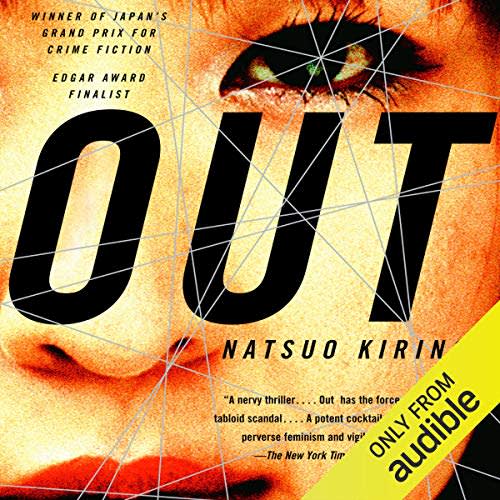
Natsuo Kirino is a crime writer who is perhaps best known for forcing readers to reconsider women’s capabilities for violence. Born in 1951, she dabbled in many different professions before settling on writing, and it wasn't until the 1990s that she found success. Her most famous novel, Out, was a breakout hit in Japan, winning the Grand Prix for Crime Fiction; its English translation became a finalist for the Edgar Award. Although only a handful of her works have been translated into English, she has written more than 20 novels and short story collections, solidifying her position as one of the most celebrated Japanese writers today. N,arrated by the talented Emily Woo Zeller, Out is a favorite of thriller listeners, .
Kōbō Abe

Kōbō Abe was a Japanese poet, essayist, playwright, and novelist. Born in 1924, he moved frequently between Tokyo and Manchuria in his early years. This rootlessness had a profound effect on Abe and later on his writing. He enrolled in medical school in 1943 and, because medical students were exempt from military work, survived World War II without having to fight. After graduating, he followed his passion, writing poetry and plays, and married a stage director. He began publishing surrealist novels, many of which were influenced by his time in Manchuria, and became politically active. As a staunch pacifist, Abe was drawn to and joined the Communist Party; when he saw how the Party treated poor workers, he broke with them. His books and plays have been translated into English, including The Ruined Map, Secret Rendezvous, The Box Man, and The Face of Another. But it was The Woman in the Dunes, published in 1962, that proved to be Abe’s international breakout hit. He died in 1993 in Tokyo.
Banana Yoshimoto
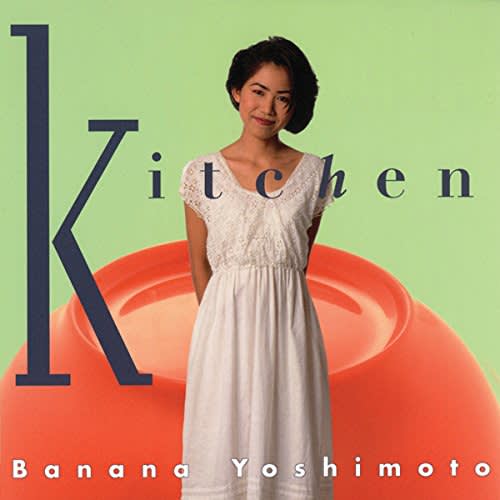
Notoriously private, Banana Yoshimoto is a notable writer born in 1964 to a liberal family of artists and writers. She was only 23 when her first novel, Kitchen, was published. It was very well received, winning her the 6th Kaien Newcomers’ Literary Prize and gaining her national and international recognition. She went on to write 12 more novels and essay collections, with many of her works adapted into Japanese TV shows and movies. Yoshimoto’s work often deals with youth, existentialism, and how tragedy can shape our lives. She is also a big fan of food (as her chosen name, Banana, may reflect) and has been praised for writing without pretension. While her characters tend to be young, her writing appeals to all ages. Among her most notable titles are Kitchen, NP, Asleep, Lizard, and Amrita, most of which are narrated by Emily Woo Zeller.
Yōko Ogawa

Born in 1962, Yōko Ogawa is a prolific, award-winning author of fiction and nonfiction. She has more than 40 books to her credit of which only a small fraction is available in English. These include her 2003 novel The Professor and the Housekeeper, which was made into a movie called The Professor’s Beloved Equation; Revenge, a collection of unsettling short stories; and The Memory Police, a dystopian thriller following the unraveling of a novelist who lives on an island where an authoritarian government rules and objects keep disappearing. First published in 1994, this science fiction novel became a National Book Award finalist for translated literature a quarter century later, in 2019. Her most recent work to be translated into English is Mina's Matchbox. Released in Japan in 2006, this coming-of-age novel received high acclaimed for its English translation in 2024. Narrator Nanako Mizushima captures the story's quiet charm and poignancy.
Sayaka Murata
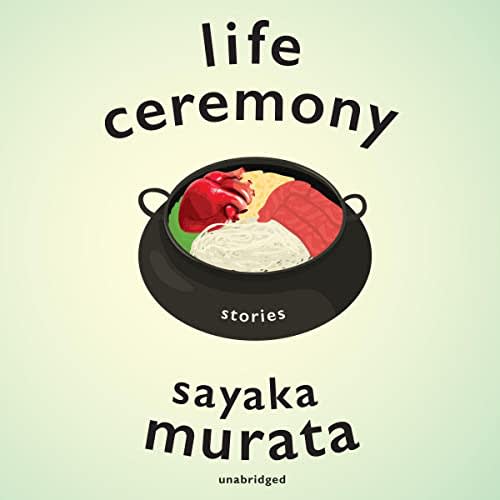
Born in 1979, Sayaka Murata was an early, avid reader of science fiction and mysteries. Her mother bought her a word processor at a young age to support her writing. She made her publishing debut in 2003 and immediately began to win awards, including the Gunzo Prize for New Writers, the Mishima Yukio Prize, and the Akutagawa Prize. While spanning genres, her books tend to look at society, conformity, and human behavior, based on her on-the-job observations as a part-time convenience store clerk. Murata has written 10 novels that are immensely popular in Japan but only two are available in English, Convenience Store Woman and Earthlings, which are both narrated by Nancy Wu. Listeners can also enjoy Murata's Life Ceremony, a collection of short stories about weird love, heartfelt friendships, and the unsettling nature of human existence, performed by Nancy Wu, Emily Woo Zeller, Jeena Yi, Natalie Naudus, Eunice Wong, and Pun Bandhu.
Yukio Mishima
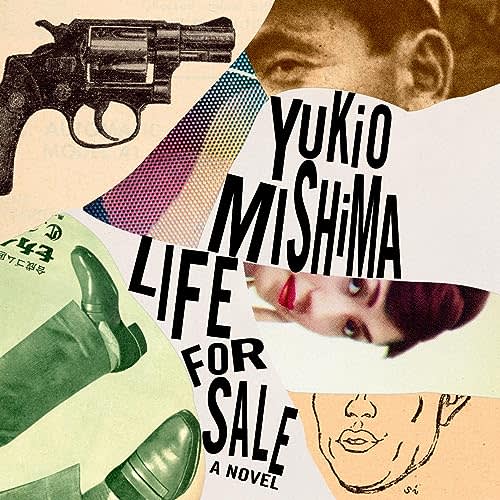
Recognized as one of the most important Japanese writers of the 20th century, Yukio Mishima is also a controversial figure. Born in 1925, he was raised by a father who did not support his writing. Yet, he went on to publish 34 novels, 50 plays, and numerous short stories. He also wrote and directed a handful of films and worked as a model. During World War II, he escaped serving as a soldier, due to illness, but he was far from a pacificist. In 1968, he founded the Tatenokai, a private militia devoted to protecting traditional values. Two years later, he and three fellow members attempted a coup to restore power to the emperor; when it failed, he performed a ritual suicide. During his lifetime, Mishima was widely read and well regarded in the Western world. His most famous books include The Sound of Waves, Spring Snow, The Temple of the Golden Pavilion, and The Sailor Who Fell from Grace with the Sea. His work continues to find new audiences—Life for Sale was recently translated into English and is narrated by Kotaro Watanabe.
Ryū Murakami
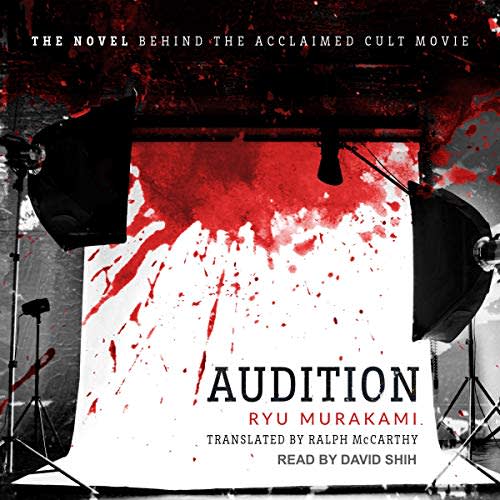
Born in 1952, Ryū Murakami has had an interesting career beyond his success as an author of more than 30 books. He has hosted a talk show, played in bands, worked as an indie filmmaker, and founded an online magazine, a video streaming service, and an ebook service. While many of his books are widely translated and available in English, he is perhaps best known for Audition. It's the story of a lonely widower who hosts a fake casting call in the hopes of finding his next wife, but when the perfect candidate shows up, she may be hiding dark secrets. This fast-paced thriller was made into an influential Japanese horror film in 1999.
Kanae Minato
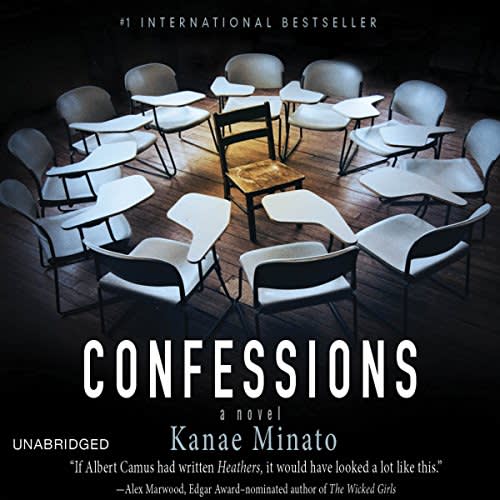
Well known in Japan for her mystery and crime novels, Kanae Minato has been crowned the queen of iyamisu novels—a term describing dark mysteries that make you say “Eww!” Born in 1979, Minato came to writing in her 30s, and her debut Confessions was a runaway hit. Since then, she’s written 14 novels, although only two are translated in English and available in the US: Confessions and Penance. Confessions was an Alex Award winner, and was nominated for the Shirley Jackson Award. Penance was made into a Japanese movie, and is available in the United States.
Keigo Higashino
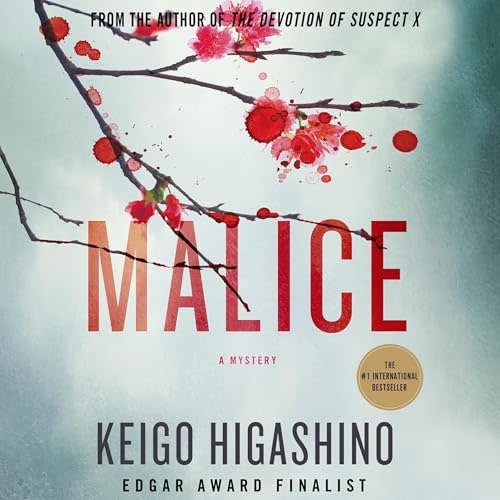
Keigo Higashino, born in 1958, is one of the most famous mystery writers not only in Japan but all of Asia. He went to school to study electrical engineering but started writing in high school and never stopped. Even while working as an engineer, he would write on nights and weekends and submit his stories to the Edogawa Rampo Prize. After winning the prize in prize in 1984, he gave up engineering to become a full-time writer. Nearly every one of his novels has been made into a TV show or movie in Japan His English translations include The Devotion of Suspect X, Salvation of a Saint, Malice, Under the Midnight Sun, Newcomer, and Malice. His thriller Naoko was the basis for a 2007 film, The Secret, starring David Duchovny, and The Devotion of Suspect X was made into a TV show.
Add:
Mieko Kawakami
recent works: All the Lovers in the Night (2022) Notable works: Breasts and Eggs, Heaven
Yukiko Motoya
Notable work: "The Lonesome Bodybuilder"
Known for: surrealist short stories
Hiromi Kawakami
Notable works: "Strange Weather in Tokyo," "The Nakano Thrift Shop"
Known for: contemporary relationships
Shion Miura
Satoshi Yagisawa
There are so many great Japanese novels and nonfiction titles in translation to choose from—which one will be your next listen?




